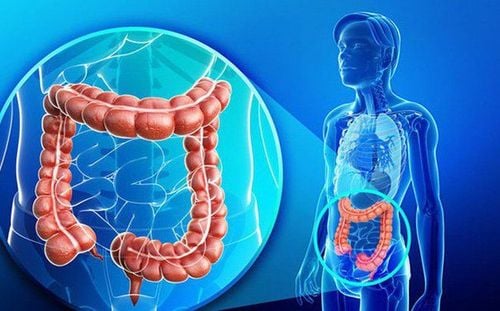Constipation is a very common cause of pain and discomfort when going to the toilet. If a patient only defecates less than 3 times a week with hard, lumpy stools... then this is a sign of constipation. So when constipated, how to make stools softer and easier to pass?
1. How to make stools soft and easy to pass
Laxatives to treat constipation can help patients relieve constipation quickly. However, in the long run, laxatives can lead to drug dependence with side effects such as diarrhea, bloating, flatulence, cramps, frequent bowel movements, etc. Therefore, methods to make stools soft and easy to pass are often preferred before doctors prescribe laxatives. Methods to soften stools have fewer disadvantages, some methods also help patients improve their health. So when constipated, how to soften stools?
1.1. Drink plenty of water to soften stools
In fact, the nature of stools will become hard, lumpy and can cause pain when defecating because the stool no longer has enough water content when reaching the large intestine. The condition of dry, dehydrated stools can occur due to many different causes including: prolonged stress, the patient often moves a lot so it is inconvenient to go to the toilet, due to side effects of medications to treat other diseases... On the other hand, the condition of dry, dehydrated stools makes the patient more stressed, complicating digestive health problems. Therefore, the most basic way to soften stools for easy bowel movements is to supplement the body with enough fluids, especially water, which can help the patient avoid discomfort caused by too dry, hard stools and help soften stools naturally.
Each person will have different water needs, the following is a general rule to know if the body is getting enough fluids: if the urine is dark yellow, the amount of urine is too little and the number of times urinating during the day is infrequent, then it can be basically confirmed that our body has not received enough fluids or may have become dehydrated.
Drinking more water softens stools and helps them move more easily through the colon. When suffering from frequent constipation, patients can consider supplementing with prune juice every day, drinking a glass of warm water every morning will help improve the discomfort very effectively. The amount of water patients need to drink to soften stools will depend on many factors such as age, gender, activity level and climate conditions where the patient lives. When the body is provided with enough water, it will make the stool thinner, helping the colon to expel stools from the body more quickly and easily.
1.2. Supplementing with lots of fiber helps soften stools naturally
Most vegetables, tubers and fruits contain a very abundant amount of fiber, this fiber is often divided into 2 types: soluble fiber and insoluble fiber. Accordingly, insoluble fiber is the most beneficial substance in softening stools for people who are experiencing constipation. This is a type of fiber that does not dissolve in water, helping food move faster from the stomach to the intestines and retaining water in leftover food after absorbing nutrients.
Soluble fiber is abundant in whole grain flours, beans and vegetables such as broccoli, green beans, potatoes, etc. Whether a person is constipated or not, they should eat enough fiber and drink plenty of water every day. This lifestyle will smooth the digestive tract, improve constipation effectively and benignly.
In addition, people with constipation can also supplement fiber through functional foods available on the market after being prescribed and approved by medical specialists.
Suddenly supplementing too much fiber to the body in a short period of time can lead to unpleasant symptoms in the digestive system such as bloating, diarrhea, etc. Therefore, we need to supplement slowly, can increase the amount of fiber gradually over 5 days and not increase more than 5g of fiber per day.

1.3. Regular exercise helps improve stool quality
Regular physical activity brings many health benefits, including increasing intestinal motility and stimulating the digestive system. Many studies have shown that exercise is an effective and safe solution for people with constipation. When exercising a lot, the body will need more water, we should drink water before - during - and after exercise to help soften stool naturally.
For some people who find it difficult to exercise, they can choose gentler forms of exercise such as yoga movements, slow walking... Pregnant women also receive many benefits when performing yoga movements designed specifically for their needs and bodies.
In addition, gently exercising before going to the toilet with jumping movements will help the body store more oxygen, promote the process of pushing stool out of the colon quickly, avoid feeling tired, losing too much energy due to going to the toilet for too long, and limit the condition of pain and burning.
1.4. Supplementing probiotics - Probiotics
Probiotics are beneficial bacteria found in fermented foods such as kefir, sauerkraut, kimchi, miso, kombucha, tempeh... Probiotics are also available in the form of packaged functional foods, yogurt drinks... to help preserve the microflora in the intestine - where billions of microorganisms are concentrated, increasing the number of beneficial bacteria that help the digestive system to be healthy and balanced.
In addition, consuming Probiotics also helps soften stools and increase intestinal motility, increasing the frequency of bowel movements. Supplementing with Probiotics is a safe way to improve constipation for almost everyone, including children, pregnant women, breastfeeding women, and the elderly.
1.5. Using olive oil to soften stools
The fat content in olive oil helps patients reduce constipation by: This amount of fat will cover the surface of the inside of the digestive tract, helping stools pass more easily, retaining more water, thereby softening stools. Using 1 teaspoon of olive oil when the stomach helps reduce constipation in most adults, but it is not recommended to use olive oil for children. A study has shown that if olive oil is not available, flaxseed oil and mineral oil are equally effective in softening stools, reducing constipation in patients on dialysis.
1.6. Aloe vera helps soften stools effectively and safely
Aloe vera juice is rich in substances that reduce inflammation in the digestive tract, helping to soften stools. Constipated patients can use aloe vera juice in smoothies, juices or can use pure aloe vera juice.
However, according to recommendations, aloe vera juice should not be used during pregnancy or for breastfeeding mothers, not for children under 12 months old and when eligible, only use this method of softening stools for a short time.
To avoid allergies to aloe vera, before using, we should apply a little fresh aloe vera on the inside of the forearm, if after 24 hours there is no reaction, it can be used safely.
1.7. Use Epsom salt to soften stools
Epsom salt is a type of salt that looks like regular table salt but contains high levels of magnesium and sulfate minerals, often added to baths to relieve muscle pain. However, Epsom salt can also be used to treat constipation by increasing the amount of water in the intestines, thereby softening stools naturally. Consuming more magnesium sulfate every day will help improve the frequency and consistency of bowel movements. Epsom salt is not recommended for children under 6 years old, pregnant women, and nursing mothers.

2. Other ways to help improve constipation
2.1. Abdominal massage
Every morning after waking up, people with constipation should perform a few massage movements, massaging the abdomen clockwise. This method will help warm up the abdomen, stimulate intestinal motility, increase the feeling of wanting to defecate and make defecation easier.
2.2. Correct defecation posture
Correct defecation posture is extremely important for patients with constipation: When sitting on the toilet, the patient should place a small chair under the legs so that the abdomen and thighs create a small angle of about 35 degrees. This position helps the intestines to be straighter and defecation to be faster.
2.3. Gently flush warm water into the anal area
Flush warm water into the anus will help soften the stool, reducing the burning sensation when constipated. However, the patient should avoid flushing too hard as it will cause pain to the skin under the anus.
There are many natural ways to soften stools to improve constipation, bloating and indigestion. In addition to adding fluids and drinking plenty of water, you should apply the above measures to improve constipation as well as help keep your digestive system healthy.
To arrange an appointment, please call HOTLINE or make your reservation directly HERE. You may also download the MyVinmec app to schedule appointments faster and manage your reservations more conveniently.













